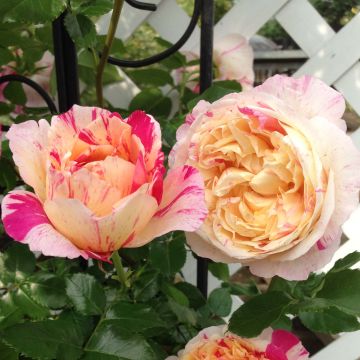

Rosa 'Pink Knock Out' - Groundcover Rose
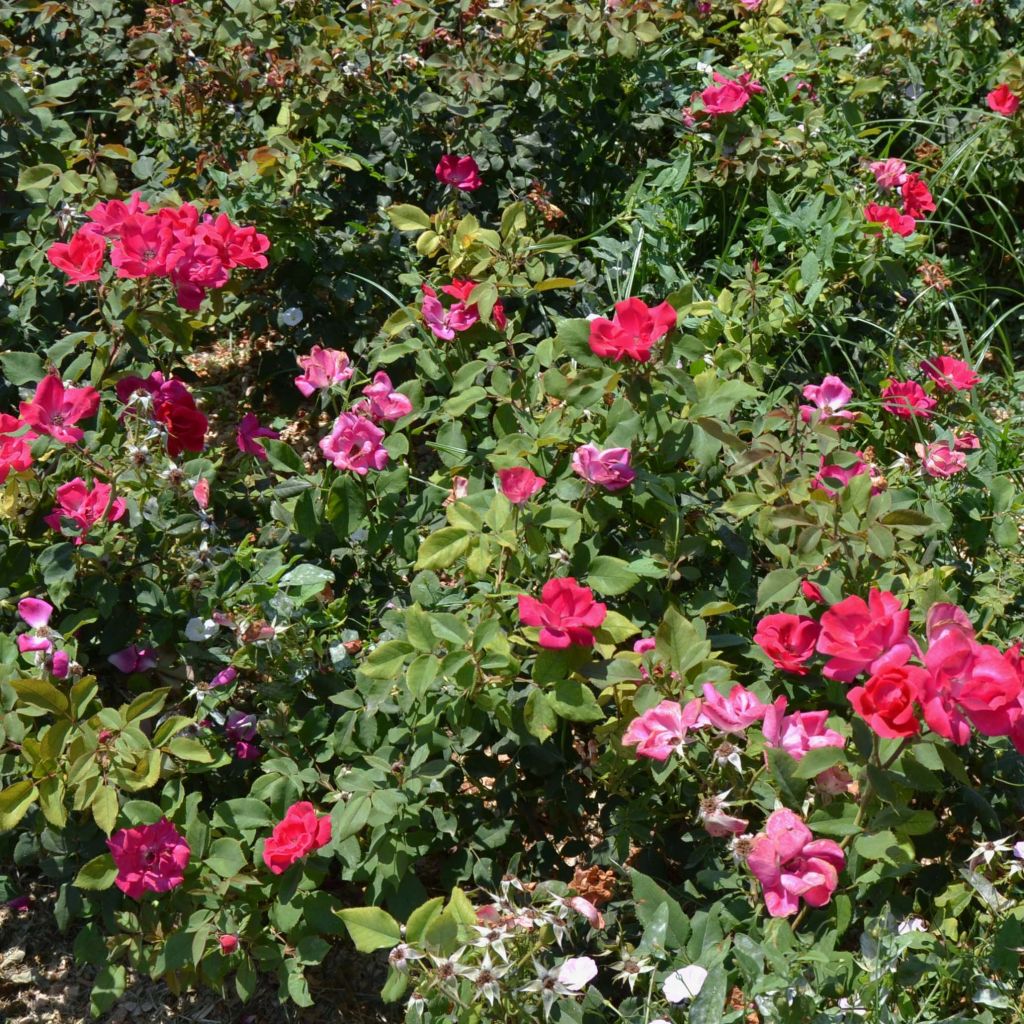

Rosa 'Pink Knock Out' - Groundcover Rose
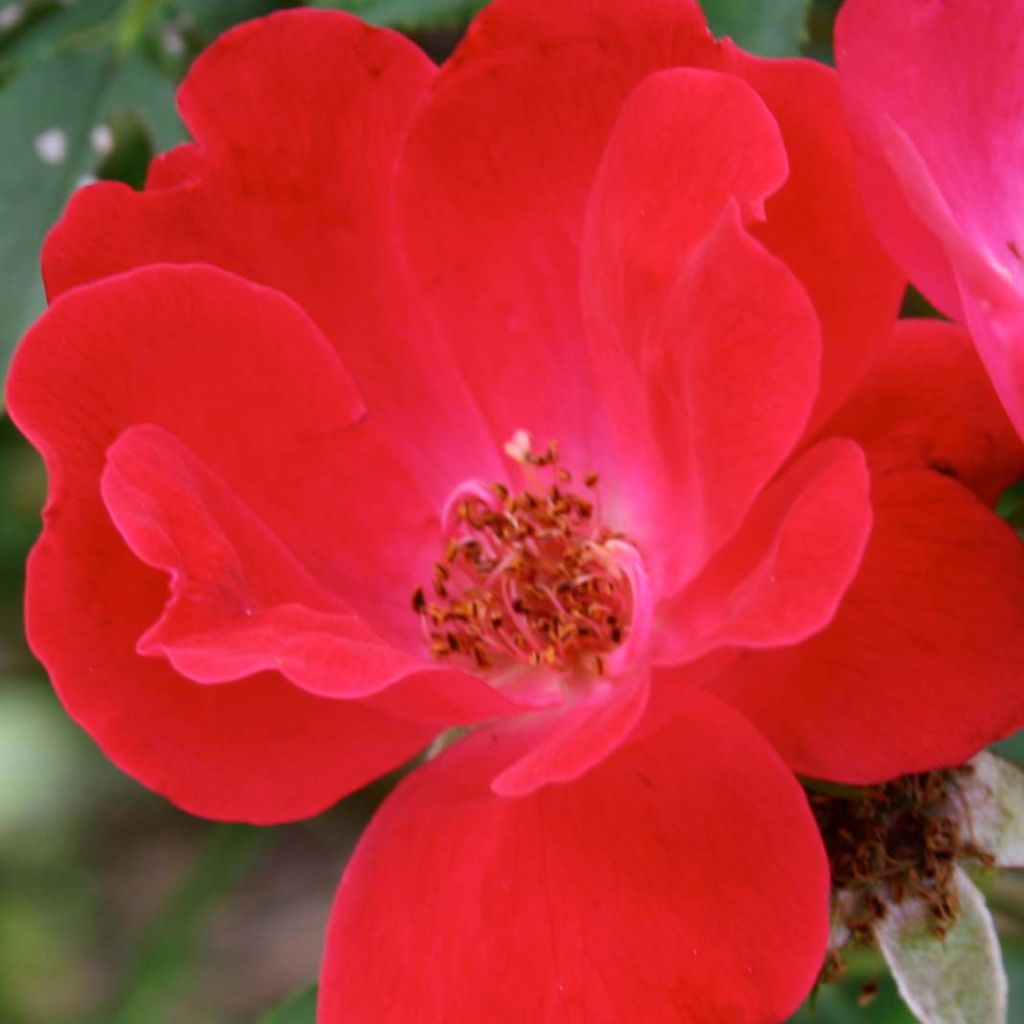

Rosa 'Pink Knock Out' - Groundcover Rose
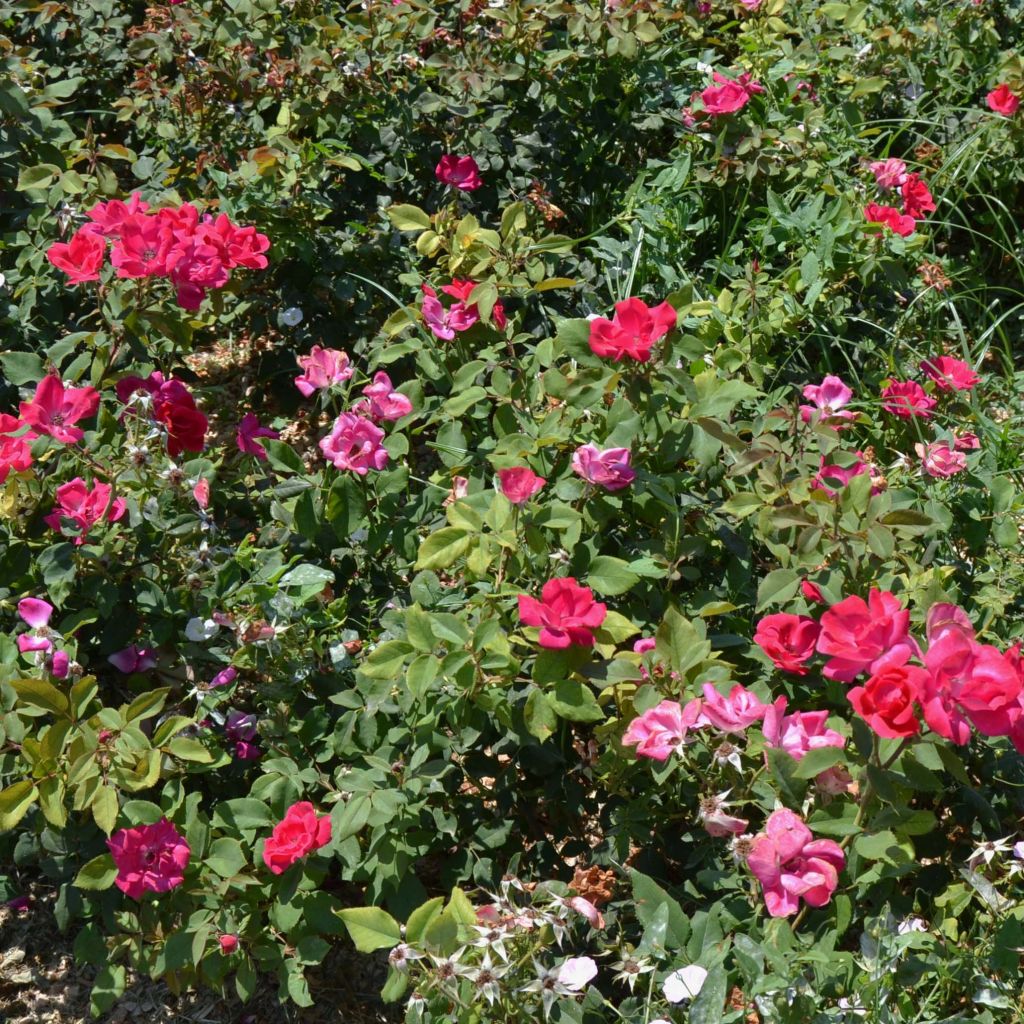

Rosa 'Pink Knock Out' - Groundcover Rose
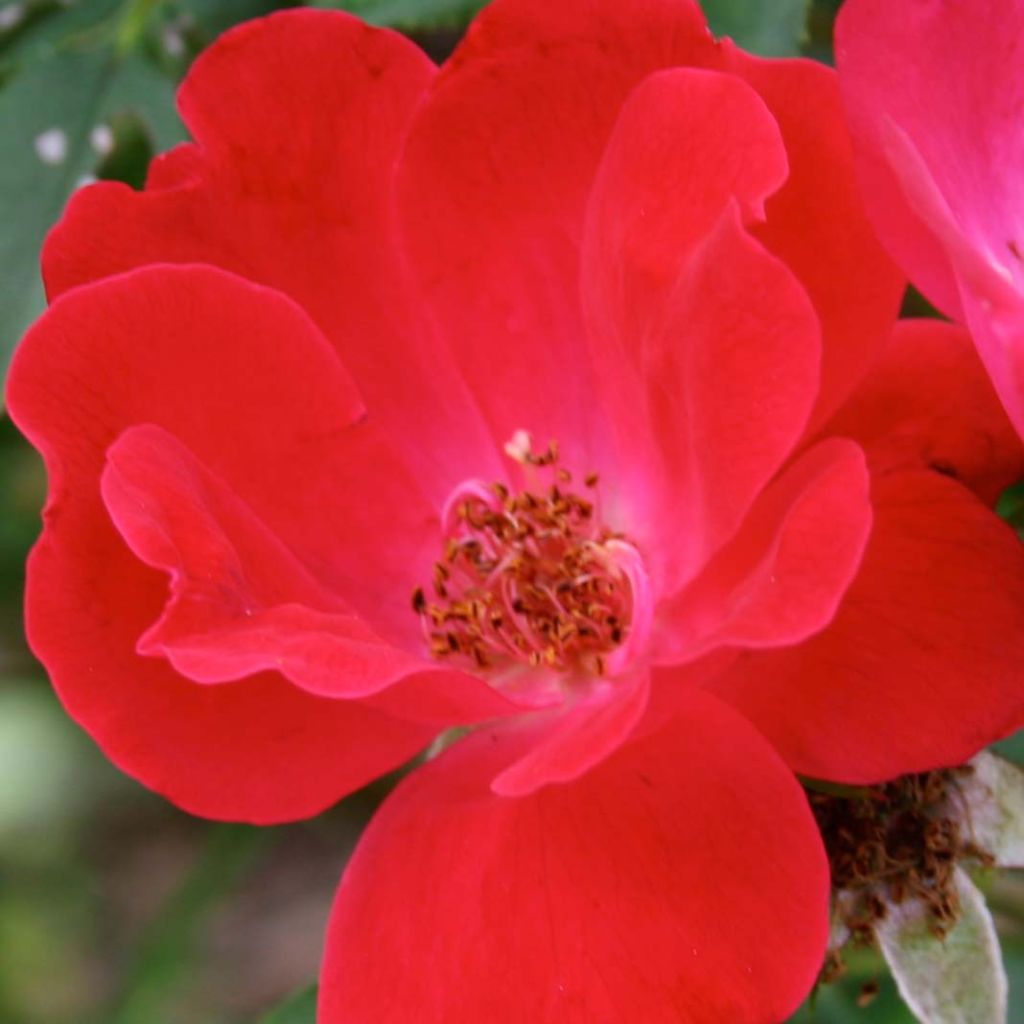

Rosa 'Pink Knock Out' - Groundcover Rose
View more pictures
Hide images

Thierry P.

Flowering in May - image 10 - Flower & bud.
Thierry P. • 84 FR
Rosa 'Pink Knock Out' - Groundcover Rose
Rosa Pink Knock Out ('Meigadrazz')
Meigadrazz
Special offer!
Receive a €20 voucher for any order over €90 (excluding delivery costs, credit notes, and plastic-free options)!
1- Add your favorite plants to your cart.
2- Once you have reached €90, confirm your order (you can even choose the delivery date!).
3- As soon as your order is shipped, you will receive an email containing your voucher code, valid for 3 months (90 days).
Your voucher is unique and can only be used once, for any order with a minimum value of €20, excluding delivery costs.
Can be combined with other current offers, non-divisible and non-refundable.
Home or relay delivery (depending on size and destination)
Schedule delivery date,
and select date in basket
This plant carries a 6 months recovery warranty
More information
We guarantee the quality of our plants for a full growing cycle, and will replace at our expense any plant that fails to recover under normal climatic and planting conditions.

Description
The 'Pink Knock Out' or 'Meigadraz' Ground Cover Rosebush, also known as the Rodin rosebush, will seduce gardeners who have discovered its exceptional ancestor, Knock Out, in every way. It differs from it with the hue of its semi-double flowers, a very bright medium pink, but it presents the same natural qualities of disease resistance and floribundity in the form of very pink bouquets that bloom from May until the first severe cold on a beautiful dark foliage. Dedicated to the famous sculptor, Rodin is an unbeatable and generous rosebush, producing many flowers and requiring little work!
The 'Pink Knock Out' or 'Meigadraz' rosebush belongs to a family called landscape roses, characterised by a bushy or ground cover habit. It forms a dense bush with a very homogeneous habit, reaching a height of about 70 cm (28in) and a spread of 60 cm (24in) at maturity. This variety bears semi-double flowers, 6 to 7 cm (2 to 3in) in diameter, adorned with a beautifully pure and bright pink hue, which reveals a small lighter centre populated with numerous stamens. They are grouped in bouquets of about ten flowers, which are almost continuously renewed on the plant from May to June to October and naturally fall off when they fade, making way for red-orange fruits. Their scent is very light, perhaps slightly more intense in hot climates. The autumn flowering is remarkable, and a lower light enhances the colour of the flowers. The very dark and glossy green foliage takes on a purplish hue in summer and purple-red in autumn. It covers long, thorny, and reddish stems. Awarded variety in 2010 in the Netherlands.
Landscape roses have many uses: lawn edging, flower beds, slopes, topping of walls or planters. They can be planted in any soil, in sunny or semi-shaded positions (3 hours of sun per day are sufficient). They offer long, exceptional flowering periods on healthy, shiny green foliage, often semi-evergreen. The Rodin rosebush adapts to all soils that are not too dry and all climates, which allows it to be welcomed without reservation from north to south of our country. It can be planted in groups of 3 plants, arranged in a triangle, or isolated on a lawn. When planted en masse, it will border paths and highlight shrub beds. It will perfectly integrate into beds of light or opulent perennials. For example, it can be planted with perennial geraniums (Geranium Blue Cloud, Anne Folkard, Nimbus, Orion), bellflowers (lactiflora, rapunculoides), catmints, snapdragons, foxgloves, or other Stachys. Left to grow freely, it will form a flowery dome with blurry shapes, wildly romantic in front of a flower bed composed of abelias, Kolkwitzia, mock oranges, elderberries, lilacs, or shrubby artemisias, for example.
Report an error about the product description
Rosa 'Pink Knock Out' - Groundcover Rose in pictures


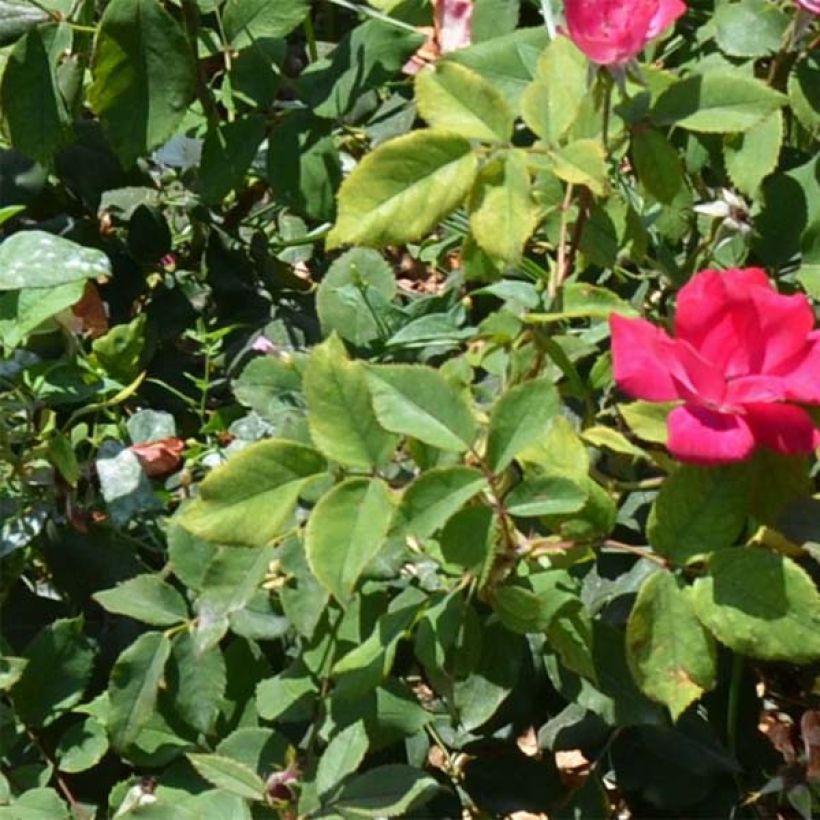

Plant habit
Flowering
Foliage
Botanical data
Rosa
Pink Knock Out ('Meigadrazz')
Rosaceae
Meigadrazz
Cultivar or hybrid
Rosa canina Laxa (3L/4L pot, Wrapped bare root)
Planting and care
How to plant roses in peat pockets? Work the soil to a depth of 30 cm (12in) x 30 cm (12in), crumble the soil well and place an amendment such as blood, fish and bone at the bottom of the planting hole. Prepare a mound of soil at the bottom of the hole. Prepare a thick mud mixture with water and soil. Dip your plant in the mud to coat the roots and prevent air bubbles (called "pralinage"). Position your plant in the planting hole, spreading the roots and checking the depth: the graft point should be just above the ground. Fill with soil and gently tamp down as you go. Prune the branches to 15/20 cm (6/8in) to stimulate growth. Create a basin at the base of the roses and water abundantly with a fine spray to eliminate air pockets and make the soil adhere to the roots. In very cold regions, it may be helpful to to mulch with leaves or grass clippings to a depth of 20 cm (8in) around your plants. Decoro roses do not require pruning. However, it is possible to prune them in spring by cutting back the branches by half. In summer, removing faded flowers will stimulate the growth of new flowers. Naturally resistant to diseases, they do not require fungicidal treatments.
Roses may develop unsightly spots at the end of summer, but this is a natural occurrence and doesn't harm the rose's growth.
Planting period
Intended location
Care
This item has not been reviewed yet - be the first to leave a review about it.
Similar products
Haven't found what you were looking for?
Hardiness is the lowest winter temperature a plant can endure without suffering serious damage or even dying. However, hardiness is affected by location (a sheltered area, such as a patio), protection (winter cover) and soil type (hardiness is improved by well-drained soil).

Photo Sharing Terms & Conditions
In order to encourage gardeners to interact and share their experiences, Promesse de fleurs offers various media enabling content to be uploaded onto its Site - in particular via the ‘Photo sharing’ module.
The User agrees to refrain from:
- Posting any content that is illegal, prejudicial, insulting, racist, inciteful to hatred, revisionist, contrary to public decency, that infringes on privacy or on the privacy rights of third parties, in particular the publicity rights of persons and goods, intellectual property rights, or the right to privacy.
- Submitting content on behalf of a third party;
- Impersonate the identity of a third party and/or publish any personal information about a third party;
In general, the User undertakes to refrain from any unethical behaviour.
All Content (in particular text, comments, files, images, photos, videos, creative works, etc.), which may be subject to property or intellectual property rights, image or other private rights, shall remain the property of the User, subject to the limited rights granted by the terms of the licence granted by Promesse de fleurs as stated below. Users are at liberty to publish or not to publish such Content on the Site, notably via the ‘Photo Sharing’ facility, and accept that this Content shall be made public and freely accessible, notably on the Internet.
Users further acknowledge, undertake to have ,and guarantee that they hold all necessary rights and permissions to publish such material on the Site, in particular with regard to the legislation in force pertaining to any privacy, property, intellectual property, image, or contractual rights, or rights of any other nature. By publishing such Content on the Site, Users acknowledge accepting full liability as publishers of the Content within the meaning of the law, and grant Promesse de fleurs, free of charge, an inclusive, worldwide licence for the said Content for the entire duration of its publication, including all reproduction, representation, up/downloading, displaying, performing, transmission, and storage rights.
Users also grant permission for their name to be linked to the Content and accept that this link may not always be made available.
By engaging in posting material, Users consent to their Content becoming automatically accessible on the Internet, in particular on other sites and/or blogs and/or web pages of the Promesse de fleurs site, including in particular social pages and the Promesse de fleurs catalogue.
Users may secure the removal of entrusted content free of charge by issuing a simple request via our contact form.
The flowering period indicated on our website applies to countries and regions located in USDA zone 8 (France, the United Kingdom, Ireland, the Netherlands, etc.)
It will vary according to where you live:
- In zones 9 to 10 (Italy, Spain, Greece, etc.), flowering will occur about 2 to 4 weeks earlier.
- In zones 6 to 7 (Germany, Poland, Slovenia, and lower mountainous regions), flowering will be delayed by 2 to 3 weeks.
- In zone 5 (Central Europe, Scandinavia), blooming will be delayed by 3 to 5 weeks.
In temperate climates, pruning of spring-flowering shrubs (forsythia, spireas, etc.) should be done just after flowering.
Pruning of summer-flowering shrubs (Indian Lilac, Perovskia, etc.) can be done in winter or spring.
In cold regions as well as with frost-sensitive plants, avoid pruning too early when severe frosts may still occur.
The planting period indicated on our website applies to countries and regions located in USDA zone 8 (France, United Kingdom, Ireland, Netherlands).
It will vary according to where you live:
- In Mediterranean zones (Marseille, Madrid, Milan, etc.), autumn and winter are the best planting periods.
- In continental zones (Strasbourg, Munich, Vienna, etc.), delay planting by 2 to 3 weeks in spring and bring it forward by 2 to 4 weeks in autumn.
- In mountainous regions (the Alps, Pyrenees, Carpathians, etc.), it is best to plant in late spring (May-June) or late summer (August-September).
The harvesting period indicated on our website applies to countries and regions in USDA zone 8 (France, England, Ireland, the Netherlands).
In colder areas (Scandinavia, Poland, Austria...) fruit and vegetable harvests are likely to be delayed by 3-4 weeks.
In warmer areas (Italy, Spain, Greece, etc.), harvesting will probably take place earlier, depending on weather conditions.
The sowing periods indicated on our website apply to countries and regions within USDA Zone 8 (France, UK, Ireland, Netherlands).
In colder areas (Scandinavia, Poland, Austria...), delay any outdoor sowing by 3-4 weeks, or sow under glass.
In warmer climes (Italy, Spain, Greece, etc.), bring outdoor sowing forward by a few weeks.





































